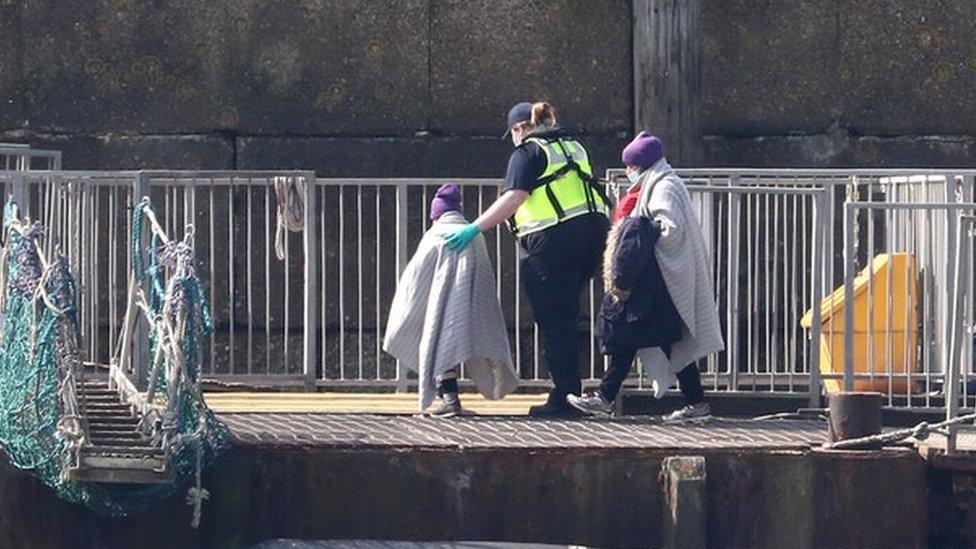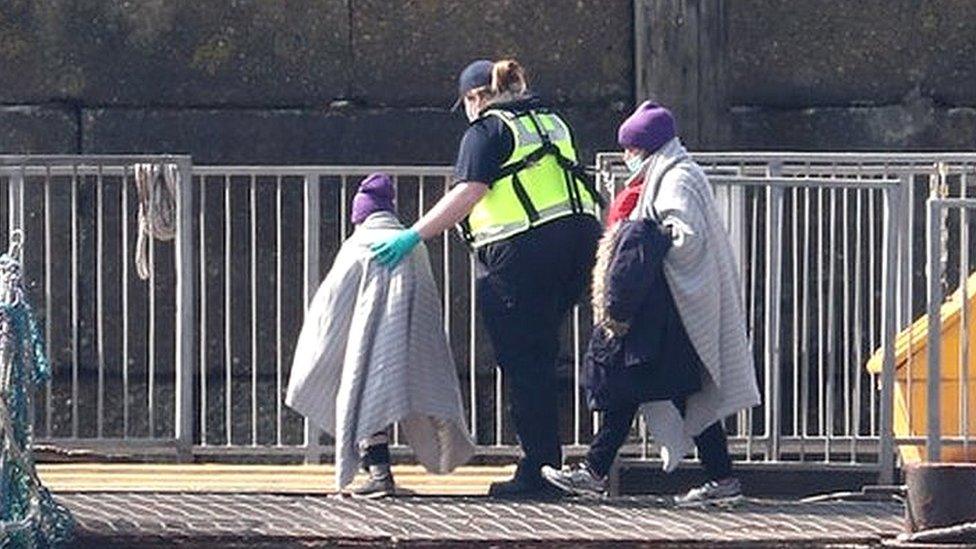Child migrants to be sent away from Kent as council reaches capacity
- Published

Children arriving alone in Kent are passed into the county council's care
Unaccompanied child migrants arriving in Kent will be looked after by Border Force until accommodation is found outside the county.
Kent County Council has said it cannot look after any more under-18s after a rise in new arrivals in recent months.
Asylum-seeking minors who arrive alone will stay at a Border Force facility in Dover before being sent into local authority care, the Home Office said.
A refugee charity said it was "disturbed" by the news.
Kent Refugee Action Network (KRAN), which works directly with young asylum-seekers and refugees, said Border Force officers "do not have the skills, experience or qualifications required" to care for "vulnerable children who need the specialist care of social services".
The Home Office has been asked to clarify how long children are expected to be left in the care of Border Force.
"We have no idea if the accommodation where the children will be held is suitable, how their safeguarding will be ensured, if they will be allocated a social worker, or be able to access legal advice or education," said Bridget Chapman, of KRAN.
Children arriving in the UK alone are usually passed into the care of the local council, with a small number later transferred to other areas.
However, Kent County Council leader Roger Gough said on Monday it "cannot safely accommodate any more" after a rise in new arrivals, most of whom crossed the English Channel in small boats.


Finding suitable accommodation for asylum seekers - children and adults - has been a perennial problem, particularly for councils such as Kent.
Twenty years ago the Labour government introduced a policy of "dispersal" to relieve the pressure on London and the south-east of England by re-locating claimants to other areas of the UK. But most local authorities have refused to take part in the scheme, creating additional burdens on those which do.
When lockdown began, and social distancing and hygiene measures were put in place, the shortage of places became more acute. It's emerged that 4,000 hotel rooms were used between March and June for asylum seekers who couldn't safely be housed in standard accommodation.
The increase in small boat crossings across the Channel, often involving vulnerable people and unaccompanied children, has exacerbated the difficulties, leading to Kent County Council's unprecedented announcement.

Any children arriving in Dover alone will now remain in the Kent Intake Unit - a Home Office facility in the Port of Dover - before being transferred into the care of another council.
Mr Gough said he had warned the Home Office it was approaching the "unthinkable situation" as its social services neared capacity at the weekend.
The arrival of 13 more lone children on Sunday and Monday had "tipped the balance," leaving the council unable to accommodate any new arrivals, he said.
The Home Office said it was an "unprecedented situation, " adding that it would "continue to work closely with the Department for Education and local government on provision for unaccompanied minors".
In May, the government increased the amount given to councils to care for asylum-seeking children after Mr Gough warned social services in Kent were at risk of being overwhelmed.
He said the reduced amount of freight crossing the Channel due to coronavirus has led to an increase in the number of asylum-seeking children arriving in Kent by boat.
- Published17 August 2020
